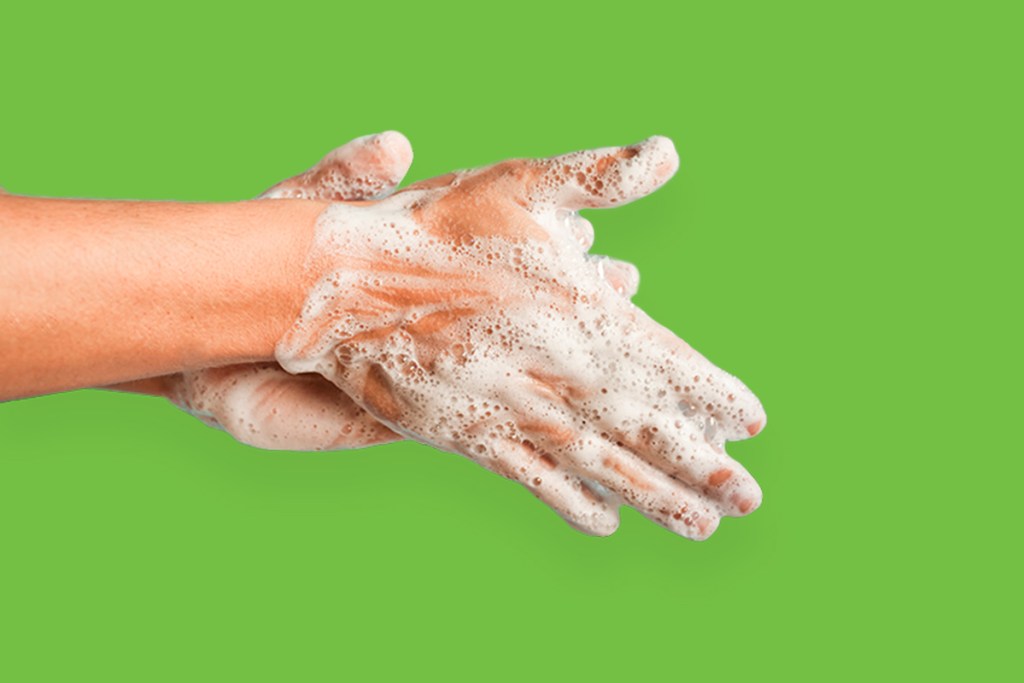Flu season generally lasts about four months: December-March. However, we always need to work to prevent cold and flu because they can happen at any time. Anyone who has small children or shares a workspace with others (that’s most people) can tell you how difficult it is to stay healthy year-round. These tips are especially important in 2020 due to the coronavirus and COVID-19 pandemic. (We discuss that at the end of the article.)
Here 10 ways to prevent cold and flu in multifamily residences. We encourage you to share these tips with your residents, which you can do quickly via text or email with Yardi Breeze Premier.

1. Put hand sanitizer stations in communal spaces
Many office buildings have hand sanitizer stations placed at strategic locations. This is one of the fastest and easiest ways to eliminate cold and flu germs and prevent infections from spreading. Here’s where you might want to put them:
- Reception desks and lobbies
- Near stairwells on each floor
- Near entrances and exits
- Outside public bathrooms
If it’s in your budget, consider giving a small sanitizer squeeze bottle to each resident. Stock extras in case anyone asks for more — it just might be a small expense that makes a big difference in preventing cold and flu at your properties.
2. Stay home if you’re sick
We all know someone who hates taking a day off, even if they have the cold or flu. (That person might be you.) Hopefully, your business provides enough sick days for your employees. They should feel comfortable taking those days off without fear of letting down their coworkers or supervisors.
Lead by example. If you’re sick, just stay home. Luckily, mobile friendly property management software like Breeze Premier means you can work from anywhere.
3. Use face masks when appropriate
Face masks can be used to help prevent cold and flu transmission, but masks are not an excuse to keep sick and contagious individuals at work. Sick employees should be allowed to recover at home.
4. Post signs reminding employees to wash their hands
Many businesses, such as restaurants, are legally required to post signs reminding employees to wash their hands. While such laws may not always apply to property management companies, it’s still a good idea to post a friendly reminder. Don’t forget to keep the soap dispenser full at all times.
Pro tip: Scrub your hands for 20 seconds with soap before rinsing with warm water. That’s about how long it takes to hum the “Happy Birthday” song twice.
5. Don’t touch your face
“Get your finger out of there,” sounds like advice parents give their kids, but they say it for good reason. Many germs get into our bodies from our hands, which collect germs from various surfaces. Your eyes, nose and mouth are like welcome passages for bacteria and viruses. You can help prevent transmission by washing or sanitizing your hands, especially when you’re sick or around people who may have a cold or the flu.
6. Keep trash bins & dumpster lids closed
Closed trash bins do more than prevent stinky garbage smells from getting out into the world. Shut lids also keep flies out. When flies land on food, they pick up viruses and bacteria. If those same flies land on other surfaces, including your food and body, there’s a good chance that they spread whatever it is they picked up.
7. Maintain & disinfect bathrooms
It’s important to clean and disinfect both staff and community bathrooms on a daily basis. This includes emptying all trash bins, stocking up on toilet paper, refilling the soap, keeping a clean plunger next to the toilet, etc.
8. Encourage residents & employees to cover their mouths when they sneeze
The best way to sneeze is to do it right into a tissue. If that’s not available, dip your head into the inside of your elbow to sneeze. Doing so helps prevent the spread of cold and flu germs. Remember to wash your hands with soap and warm water immediately after you sneeze.
- Post “how-to” signs in communal spaces
- Send an email or text with friendly reminders about hygiene during cold and flu season
Watch: Even adults need a reminder sometimes
9. Offer onsite flu shots
Even if you offer health benefits, not everyone is going to take time off or use their sick leave to get a flu shot. If you offer them onsite for free or at a low cost, you’re showing your employees that you truly care about their health and wellbeing.
Here are a few companies that provide onsite vaccinations:
Shot providers can set up stations in your community room or even your office — anywhere there’s space. To help offset the cost to your business, don’t be afraid to charge a small fee.
10. Host a nutrition class for residents
There’s no cure for a cold or flu. However, a healthy diet with lots of fruits and vegetables can help boost your immune system. Good nutrition can prevent illness, help you recover faster and/or lessen the intensity of the infection.
Plus, many residents enjoy it when their property hosts events. You can host a nutrition class yourself, ask if any residents would like to host it or even bring in a local business. They might do it for free, since they’re getting a chance to promote themselves. There is also the option of online events for those who are unable to attend but interested in participating.
Coronavirus & COVID-19 pandemic
The coronavirus is a highly contagious virus that spreads via droplets in the air or contact with surfaces where those droplets land. Exposure to the virus causes a disease called COVID-19, which can have flu-like symptoms and may lead to pneumonia.
COVID-19 is the same thing as the flu (i.e. influenza). Statistically speaking, the COVID-19 death rate is estimated to be over 3%. In comparison, the flu has a much lower death rate of about 0.1%. The actual percentage of COVID-19 deaths could be lower, especially if there are many people with mild symptoms or no symptoms. Such individuals would not be counted among those infected because no one knows they’re sick.
This pandemic is currently spreading throughout Canada and the rest of the world. To be safe, everyone should follow the latest advice from their medical provider and the Public Health Agency of Canada.
WHEN TO ACT
According to the Public Health Agency of Canada, if you have symptoms of exposure to the coronavirus (fever, cough and/or shortness of breath), you should seek immediate medical attention under these conditions:
- You develop symptoms and have been in close contact with a person known to have COVID-19
- You have recently traveled from an area with widespread or ongoing community spread of COVID-19
Disclaimer on cold & flu prevention
We’re not doctors, so we can’t give medical advice for any specific symptom(s) that could point to cold, flu, COVID-19 or something else entirely. If you think you have something serious, there are steps you can take. High-risk individuals, including pregnant women and those over 65, should see a doctor or go to the emergency room as soon as possible.
Bottom line: If your residents are sick and not sure what to do, they should call their doctor.



